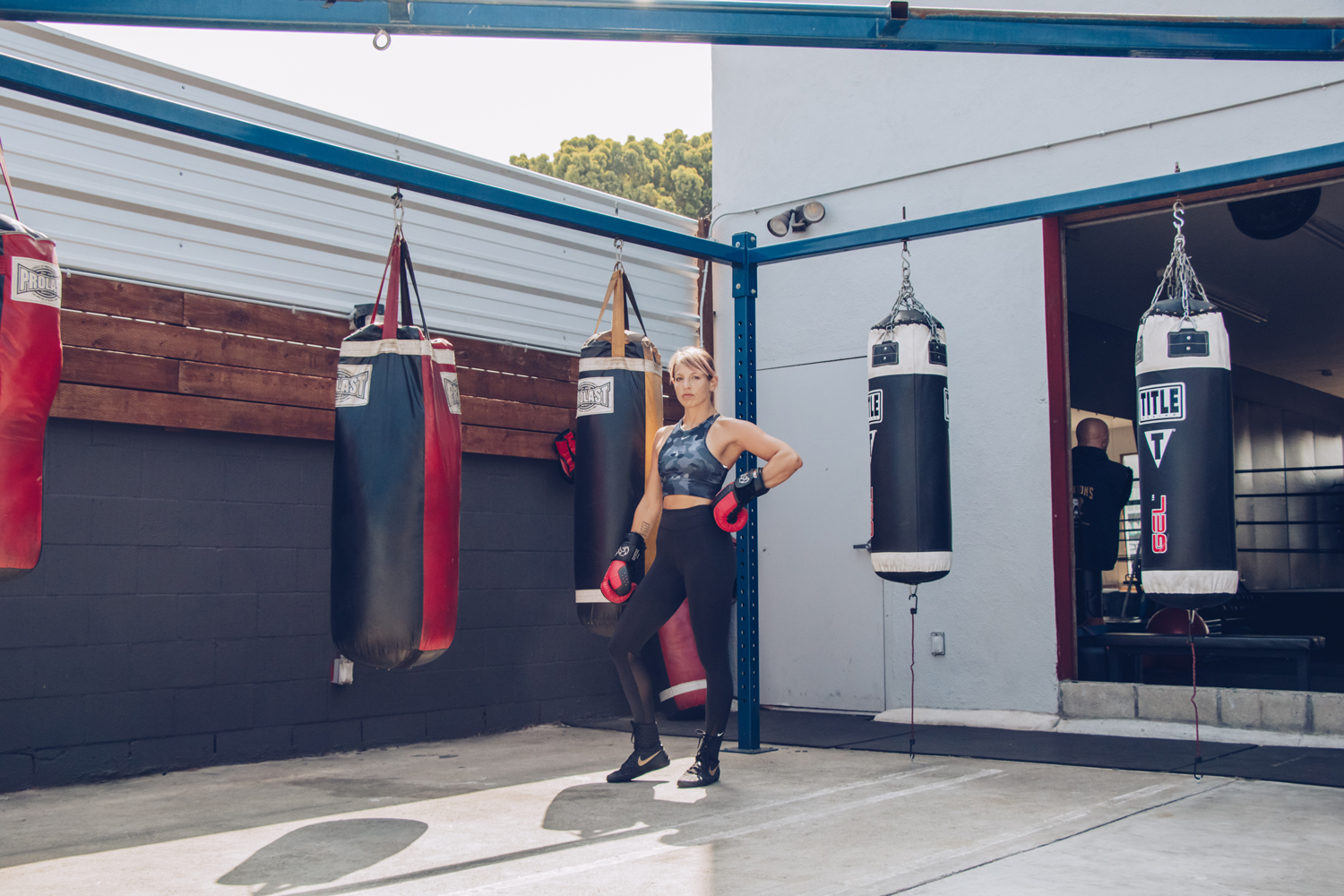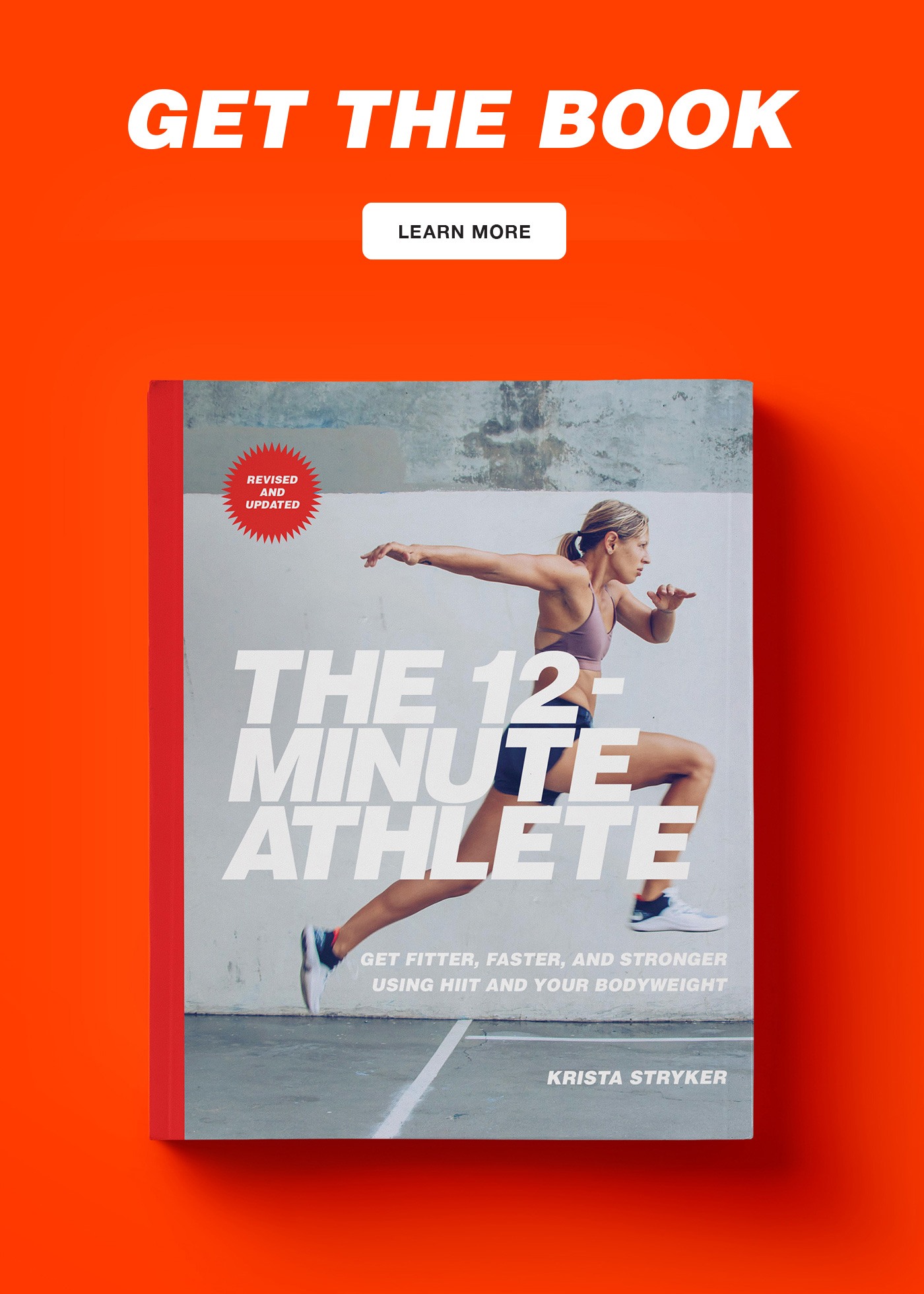
I’ve always wanted to be tough.
Even as a kid, I was never the princess type; I was what’s typically called a tomboy. Instead of hosting tea parties and playing barbies, I was outside getting muddy and skinning my knees.
In high school, I was an angsty teenager who would punch boys and walls whenever I could. I put on an air of toughness, but deep down, I was anything but. I would quit at the first sign of struggle, crumbling at the possibility of failure. I had anxiety and panic attacks and generally disliked daily life. With no real physical outlets — team sports just weren’t my thing — I had nowhere to put my extra energy or unexplained anger.
Looking back, it’s clear that boxing or martial arts training would have been the best possible thing to help me navigate the uncomfortable years of my youth. But I lived in a small town, and we didn’t know of any dojos nearby. Even if I could have found one, at fifteen, I’d somehow determined it was too late to get started. So I kept punching walls instead (sorry, mom and dad).
Over a decade later, in my late twenties, I finally decided that my angst wasn’t going anywhere – maybe it was even justified. I needed to learn to punch things on a formal basis. After years of being obsessed with the sweet science of boxing from the sidelines, I decided it was finally time to give it a try.
I cycled through gyms and coaches until I met one who was willing to teach me as if my boxing might amount to something. At this point, I would train two, sometimes three times a day, trying over and over to prove I could be tough. I got knocked down a lot. I stepped into the ring before I had any right to do so, getting my ass handed to me by people much more experienced than I was. I hoped no one would notice as I ended each sparring session gasping for air, fighting back tears of frustration, wishing I could be better, tougher, now.
But I kept coming back. I watched as others around me began, then eventually gave up on their training, while I kept going. I considered quitting a few times, but that thought never lasted very long. No matter how badly I got beat the day before, I would still show up the next day, eager to learn and improve. I would (not always wisely) train through injuries and fatigue. I got at least one concussion. I sparred, mostly with men who were thirty, fifty, even a hundred pounds heavier than me and had years more experience than I had. I got my amateur boxing license and had my first fight. And I kept going.
It took COVID for me to realize that I had finally achieved what I’d always wanted: I had become tough. Real tough. I was no longer the wannabe-tough, scared shitless girl that I used to be. I no longer quit at the first sign of failure.
I had become someone who got punched in the face, then punched back. And even though I lost my first official match, I put up a good fight.
Suddenly fighting lost much of its appeal.
Shifting Away From Toughness
“There is a difference between a fighter and a martial artist. A fighter is training for a purpose: He has a fight. I’m a martial artist. I don’t train for a fight. I train for myself. I’m training all the time. My goal is perfection. But I will never reach perfection.” – Georges St.-Pierre
About a month into COVID, I had a nagging feeling that something had shifted.
I was still training multiple times a day. I loved the training, and I especially loved the learning process. But that urgency to fight, to prove to myself and the world that I could be tough as nails — that was no longer there.
It’s not that I didn’t think I could step into the ring again. It’s that I no longer needed to.
Punching things will always have its allure. In my opinion, there is nothing as satisfying as hitting a heavy bag as hard as possible after a bad day. One can’t help but feel like a badass after hitting pads or after surviving a few rounds sparring with a training partner who challenges you while also bringing out the best in you. But hurting people has never been my thing. These days, I’d rather break up a fight than start one.
I already knew I could do three-a-day workouts without complaint and stand back up after taking a sickening punch to the gut, ready to keep going. In just a few short years, I’d built the discipline and mental toughness that most people will never get close to in their lifetime. I also knew that, if I wanted to, I could spend the next few years racking up an amateur boxing record and that I’d win some, and lose some, but win more than I lost.
I knew I could keep getting stronger, better, tougher, if I wanted to. I had proved that to myself once and for all.
I started craving something other than physical toughness. I wanted the continued learning, the journey, and most of all, the self-mastery. I wanted to be the best I could be as a fighter, athlete, and human being.
So I started searching for more.
Becoming a Real-Life Superhero
I’m a kid from the Harry Potter generation. I grew up not-so-secretly hoping to wake up one day to an owl perched on my windowsill, holding my acceptance letter to Hogwarts in its beak. That, or to open the door to Narnia.
Most of all, I wanted special powers that would turn me into a badass, a real-life superhero. I never realized I could create many of those powers if only I put in the work. That by actively training my body and my mind, I could become that person I’d always wanted to be (well, minus the invisibility cloak). And that the best way to do so would be to train martial arts.
Growing up, I didn’t have any friends who did martial arts, so I didn’t know much about it, other than it was something that people way cooler and more badass than me grew up doing. I certainly never thought of it as something I could start in my early thirties. Or as something that would change the trajectory of my life.
When I lost the drive to fight at the beginning of COVID, learning became my number one goal. I’ve always loved to learn, but my drive to soak up knowledge was fueled by an almost desperate need to find meaning in an increasingly uncertain world. Like everyone else this past year, I realized I had no control over external events. Increasing my mental and physical strength to create the best possible version of myself was the only thing that I could control.
I started with what I thought was a logical route, turning first to MMA. Learning kicks and elbows and knees and grappling was overwhelming at first, but it was also fun and freeing after the strict rules of hands-only boxing. But I quickly realized that it, too, was centered around toughness. Watch any UFC fight, and you’ll see this in action; it’s rarely about who is the best fighter and more about who is the toughest.
Around the same time, I was introduced to George Leonard, an American writer and educator who helped define the human potential movement that spawned out of humanistic psychology in the 1960s. His books Mastery and The Way of Aikido made a lasting impact on me. In both, he talks about beginning training in the martial art of Aikido in his late forties and how the journey became one of the most profound learning experiences of his life.
I wanted that journey. I wanted to fully immerse myself in something, to commit to a lifelong practice, and see just how good I could get — not for any external validation, but for myself. The more I learned, the more I became fascinated with martial arts and the philosophy behind them. Traditional martial arts do not glorify toughness. Instead, they teach qualities like discipline, self-mastery, and the strengthening of the body and mind to reach untapped potential. It is considered a lifelong practice, a perfection to always aim for, but one that can never be reached.
So I started learning elements of karate, taekwondo, judo, and jiu jitsu. The training was unbelievably frustrating at first. I was used to going all out in boxing and MMA, mostly basing the success of any training session on how tired and drenched in sweat I was after my workout was over. I can do hard work.
Martial arts training, on the other hand, is hard in a different way. All the HIIT, calisthenics, and boxing workouts I do have helped me build significant strength and stamina. I’m used to being the last person standing after a difficult workout. But in training martial arts, I’ve been forced to slow down in a way that was deeply uncomfortable at first. In martial arts, there is no glory in wasted energy. The movements are precise and purposeful. I often end training sessions feeling fatigued, not in my body, but in my brain. It’s a strange feeling, one that I still struggle with. But the training makes me feel more like a superhero than any other movement I’ve explored yet.
Lessons I’ve Learned So Far
I’ve learned a lot in my martial arts journey so far. I’ve learned that being tough doesn’t make me special. Anyone can learn to be tough. Real toughness has nothing to do with how many burpees you can do in a row or how many hits you can take to the head (although one of the major benefits of all physical training is learning to be more comfortable with being uncomfortable).
Real toughness is about not constantly having to prove yourself to others. It’s about learning to trust yourself, about not being controlled by your emotions or the dictator in your head that tells you that you can’t do this. Real toughness is having complete mastery over yourself.
I’ve learned that comparing your journey to others’ is pointless. When I was first getting started in boxing, I would constantly compare myself to those around me. I’d endlessly beat myself up for not being as good as them. But most of the people I was judging myself against had been training since they were young. It made no sense for me to compare myself to them.
This is even truer in martial arts, where it’s standard for people to be at different levels at all different times in their lives. It’s true in any pursuit, fitness-related or otherwise. You are on your journey, and other people are on theirs. Most of the time, you have no idea what they’ve gone through to get where they are today. Stay on your path, and try not to compare yourself to others.
I’ve learned that trying to rush the process will most likely delay, not speed up, growth. There will be many times when you feel like you’re going backward and long periods of frustrating plateaus. That’s the journey. Trust the process.
I’ve learned that ego can’t have a place in the learning process. The more you’re in your head constantly worrying about how well you’re doing or what others think about you, the less likely you are to be in a state of flow. Leave your ego at the door.
Of course, just because I’ve learned these things doesn’t mean I always perfectly practice them. Learning lessons is one thing, but to internalize them is another. I’m a work in progress, just as we all are. Overriding old habits and beliefs is hard. It doesn’t happen overnight, but I’m working on it.
I’m only eight months into training, a complete novice in the eyes of experienced martial artists. But I can already tell it’s changed me. It’s put me on a different path. I know it will be a part of who I am for the rest of my life.
I am on the never-ending path to self-mastery and can’t wait to see where it takes me.
“One can have no smaller or greater mastery than mastery of oneself.” — Leonardo da Vinci



Thank you for sharing, what martial arts form did you start with or recommend for a novice ?
Thank you for being so open, honest and raw. I always look forward to reading your post.
Great! Thanks for sharing your experience it is very inspiring and motivational. It helps me to get free from the stress by hitting the punching bags after a bad day!
This is just so real and what you say is about lessons is just the truth thanks
This blog is very helpful for us. In this blog commenting we get all information about fitness. If you want get more guideline then follow us.This blog is very helpful for us. In this blog commenting we get all information about fitness. If you want get more guideline then follow us.